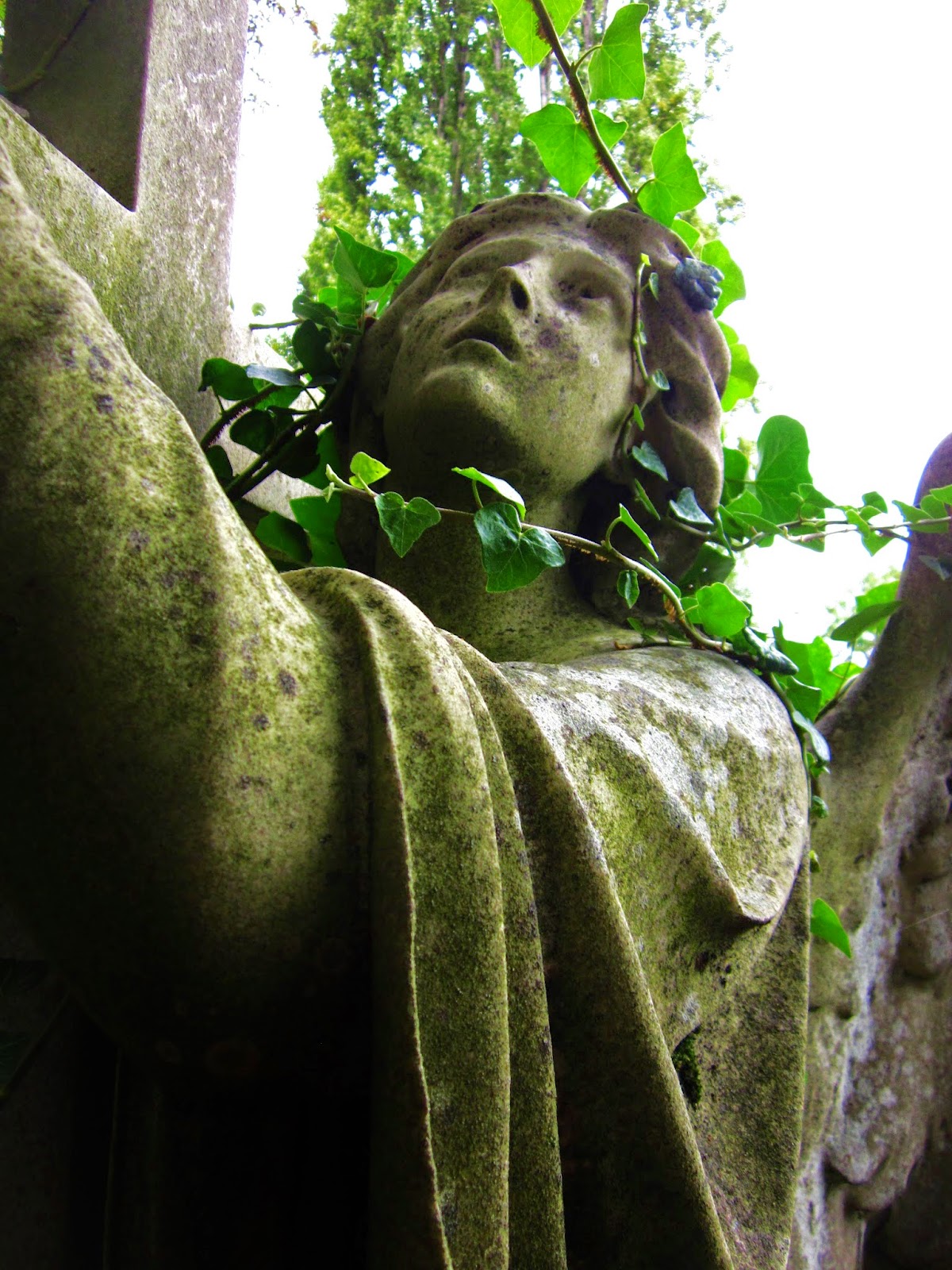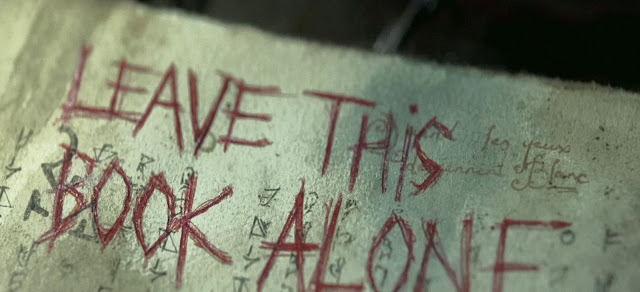Interview with Christine Makepeace - Editor of Paracinema Magazine
 Born from a conversation about film magazines in a small Queens, New York apartment in the summer of 2007, Paracinema Magazine has steadily been making a name for itself as a distinct, intelligent and left-of-centre publication of the highest order. Taking its title from a phrase coined by film scholar Jeffrey Sconce, the independently produced, quarterly magazine focuses primarily on all facets of cult and genre cinema.
Born from a conversation about film magazines in a small Queens, New York apartment in the summer of 2007, Paracinema Magazine has steadily been making a name for itself as a distinct, intelligent and left-of-centre publication of the highest order. Taking its title from a phrase coined by film scholar Jeffrey Sconce, the independently produced, quarterly magazine focuses primarily on all facets of cult and genre cinema.Each issue contains accessible in-depth analytical pieces, critiques, interviews and academic articles on all manner of genre cinema – from Hitchcock to Ed Wood – all presented in a strikingly designed and attention-commanding publication. Paracinema is for those who want to delve deeper into the often murky depths of ‘periphery’ cinema; each issue contains pieces on a staggering array of movies. Works by everyone from Herzog and Bergman to Carpenter and Wiseau, to name but a few, are analysed in enthusiastic articles written by fans, for fans.
The types of films the magazine lovingly dissects – b-movies, cult classics, indie, horror, science fiction, exploitation, underground and Asian films from past and present – are usually dismissed outright by critics, as they fall outside of the mainstream. However they have proved time and again – as the contents of Paracinema will obviously attest – that they lend themselves well to critical analysis and sub-textual study. With the magazine’s forthcoming 10th issue (!) in the works, I caught up with Paracinema’s editor and co-founder, Christine Makepeace, for a chat about the magazine, the appeal of cult movies and the challenges of producing an independent magazine.
Can you tell me a little about yourself and your writing regime?
I’m actually kind of terrible at talking about myself. I’m a girl. I like movies and TV. Oh, and kittens. As far as a regime goes, I’m flattered you would think I have one! I kid. Sort of. I love to write and I do so whenever the mood/inspiration strikes. As of late I have adopted something of a copyeditor role for the magazine, so the time to actually write has been shortened significantly. I try to do a lot of reading. I think it’s just as important as the writing.
Where did the idea for Paracinema come from and when did you take the initial steps to start putting the first edition together?
It really came together on a whim. I like to use the term “organic” when speaking about the process. I had been doing some writing for an independent horror mag that shall remain nameless. After awhile I became more and more disillusioned by their practices. I would lament and whine and one day my partner, (in life and in magazines) Dylan, declared we could do a better job. So we decided to create the magazine we wanted to read. And that’s what we did. Our motives were quite selfish.
Good for you two! How challenging was it to eventually set up the magazine and run it?
Again I will over use the term “organic.” Sure it was challenging because we had NO CLUE what we were doing, but it really came together all on its own. I think we were blessed to be so ignorant. I mean, the printed word isn’t really what’s hot right now. I adore it, obviously, but magazines have been folding for awhile now. We flew in the face of what “made sense.”
Running the magazine out of your home would suggest to me that it’s a labour of love – how fair is it to say this? What are the most rewarding aspects?
Labour of love for sure! This magazine is our baby. We put all our extra time and money into it. Just holding the tangible product is reward enough. We have managed to meet so many amazing people because of this. I truly feel blessed to be a part of this community.
What is it about the kind of cinema covered in the magazine that you find so compelling and engaging?
The types of films that end up in the magazine span every genre. The only thing they have in common is that they aren’t necessarily “mainstream.” That being said, I have always been a fan of cinema that is a little obscure or left of centre. My first love is horror and it’s no secret that films of that ilk tend to be rich with allegory and symbolism, and I love that! I love digging deep into subtext and I hope that desire comes across in the articles we put out there.
It really does. Why do you reckon cult/genre cinema provokes such critical/academic analysis and garner the huge cult followings it does?
There is just so much to be found in these films. They are all fascinating snapshots that evoke feelings in the people who view them. For instance, one of my personal genre favourites is I Spit on Your Grave. And I’m not alone. Hoards of people adore and dissect this film. There are these levels of feminism and violence that simply begs to be discussed. I always wonder if these filmmakers realized what they were creating. Sometimes I think it was just a subconscious reflection of the time, i.e. Dawn of the Dead. SO much more can be said in these cult films than can be expressed in a literal drama.
What can Paracinema offer readers that other genre publications cannot?
The answer to this question goes hand in hand with the one above. We are trying to offer pieces that take a deeper look into film. They range from narrative to academic, but they always take a serious look at “genre” film. I’m rambling, so in short, we are the magazine for film lovers who want to delve deeper into cinema.
Do you think there is still a market for genre publications such as Paracinema, given that there is such a wealth of online publications about the sorts of films the magazine focuses on?
It has become a very niche market, but yes, I believe there still is one. There is a group of people out there who want to have a tangible product to hold on to. Most of our readers keep the magazine and refer back to it. It isn’t a disposable product for them. And that is exactly the person we want to reach.
How difficult is it producing an indie publication in the industry today?
I’m sure it’s much more difficult than in the pre-blogging days. But we have been lucky. People really seem to respond to what we’re offering and view it as a welcome alternative to online media.
How has the magazine evolved over the past couple of years? What are your future plans for it?
The process for putting together an issue is pretty much the same now as it was with issue 1. It just takes shape much more smoothly. Our goals are modest in that we just want to continue what we are doing. I think a crazy mainstream success is unrealistic. But as long as readership continues to grow, we’ll be happy.
What films/filmmakers in particular have had the greatest impact on you, with regard to what kinds of films you like to watch/write about?
My two big loves are Hitchcock and John Carpenter. My taste in film was basically created by these two men.
 |
| Christine Makepeace |
Other writers. When I read a well written, thought provoking article it makes me want to sit down and create something spectacular.
Issue 9 of Paracinema is available now – within its lurid pages are all manner of fleshy features to sink your teeth into, with titles such as The Death and Life of Cinema: An interview with Joe Dante; Emmanuelle, Transnationality and the Cannibalisation of Cultures; Devastating Color: Horror and magic in Herschell Gordon Lewis’s The Wizard of Gore and How Hannibal Lecter Helped me Through a Difficult Time in my Life; its one of their best issues yet…
Check out Paracinema’s website for more cult cinema appreciation…






